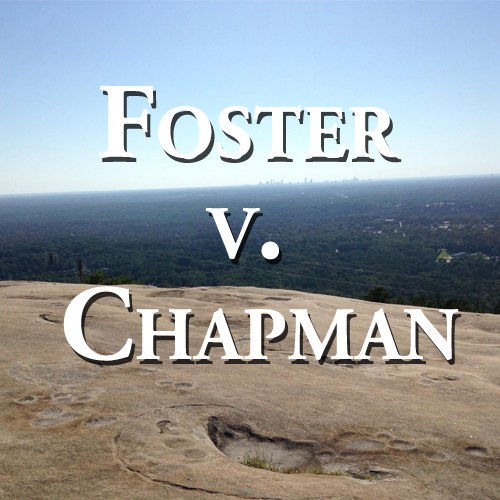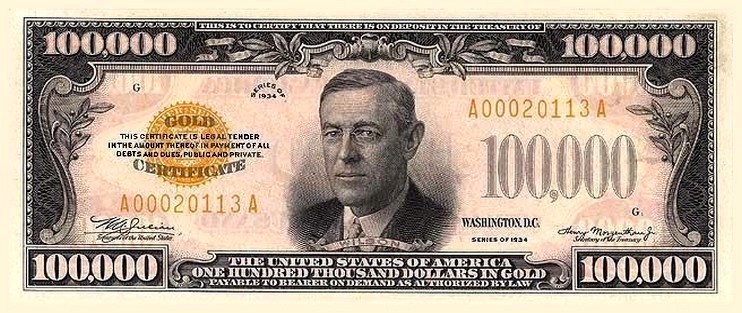Menu
Hot-Topics
May 17, 2022 | SCOTUS Wraps Up Oral Arguments for the Term
Category: US Constitution

Williams v Pennsylvania: Judge’s Failure to Recuse Violated Due Process
In Williams v Pennsylvania, the U.S. Supreme Court held that judges must recuse themselves in cases that they once prosecuted 579 U.S. ___ (2016). By a vote of 5-3, the justices held that a Pennsylvania judge’s participation in a death penalty case...

Puerto Rico v Valle: Court Denies Territory’s Sovereignty in Double Jeopardy Case
In Commonwealth of Puerto Rico v Sanchez Valle 579 U.S ___ (2016), the U.S. Supreme Court held that the Commonwealth of Puerto Rico and the federal government are not separate sovereigns for purposes of the Double Jeopardy Clause of the United States...

Army Corps of Engineers v Hawkes Co and Final Agency Actions
In a unanimous decision, the U.S. Supreme Court in Army Corps of Engineers v Hawkes Co 578 U.S._____(2016) addressed whether a “jurisdictional determination” (JD) that wetlands are subject to regulation under the Clean Water Act was a final agen...

Foster v Chapman: Excluding Jurors Based on Race
In Foster v Chatman (2016), the U.S. Supreme Court held that prosecutors purposely discriminated against a Georgia man facing the death penalty when they dismissed two black jurors during jury selection. The Court’s narrow decision was largely base...

Antiquities Act of 1906
Signed into law by President Theodore Roosevelt in 1906, the Antiquities Act was the first federal regulation to protect the cultural and natural resources of the United States. It resulted from concern over decades of looting and destruction of Nati...

Federal Reserve Act of 1913
On December 23, 1913, President Woodrow Wilson signed the Federal Reserve Act into law. The landmark legislation created the Federal Reserve, which was intended to reform the country’s banking system and help secure economic stability. ...

The 4-4 Supreme Court Punts in Zubik v Burwell
The 4-4 Supreme Court Punts in Zubik v Burwell The U.S. Supreme Court declined to address the merits of Zubik v. Burwell, at least for this term. Instead, the Court’s per curium opinion on the Affordable Care Act’s contraception mandate directs ...

The Federal Antitrust Acts
The Federal Antitrust Acts In 1890, Congress enacted the country’s first antitrust law, the Sherman Antitrust Act. In 1914, Congress passed the Federal Trade Commission Act and the Clayton Act to further police anticompetitive business conduct. To...

The Sixteenth Amendment: The Federal Income Tax
The Sixteenth Amendment: The Federal Income Tax The Sixteenth Amendment to the U.S. Constitution eliminated the requirement that federal taxes be levied on individuals in proportion with the populations of their states. The amendment cleared the way...

Franchise Tax Board of California v Hyatt: Applying the Full Faith and Credit Clause
Franchise Tax Board of California v Hyatt: Applying the Full Faith and Credit Clause On April 19, 2016, the Supreme Court reached another 4-4 tie. In Franchise Tax Board of California v Hyatt, the justices could not decide whether to overrule Nevada...
Previous Articles
SCOTUS Wraps Up Oral Arguments for the Term
by DONALD SCARINCI on May 17, 2022
The U.S. Supreme Court has concluded its oral arguments for the October 2021 Term. The justices hea...
SCOTUS Rules Censure of Elected Board Member Didn’t Violate First Amendment
by DONALD SCARINCI on May 10, 2022
In Houston Community College System v. Wilson, 595 U.S. ____ (2022), the U.S. Supreme Court held th...
Supreme Court Breach Is Not the First Involving Roe v. Wade
by DONALD SCARINCI on
The recent disclosure of Justice Samuel Alito’s decision purporting to overturn Roe v. Wade is ar...
The Amendments
-
Amendment1
- Establishment ClauseFree Exercise Clause
- Freedom of Speech
- Freedoms of Press
- Freedom of Assembly, and Petitition
-
Amendment2
- The Right to Bear Arms
-
Amendment4
- Unreasonable Searches and Seizures
-
Amendment5
- Due Process
- Eminent Domain
- Rights of Criminal Defendants
Preamble to the Bill of Rights
Congress of the United States begun and held at the City of New-York, on Wednesday the fourth of March, one thousand seven hundred and eighty nine.
THE Conventions of a number of the States, having at the time of their adopting the Constitution, expressed a desire, in order to prevent misconstruction or abuse of its powers, that further declaratory and restrictive clauses should be added: And as extending the ground of public confidence in the Government, will best ensure the beneficent ends of its institution.
Awards




